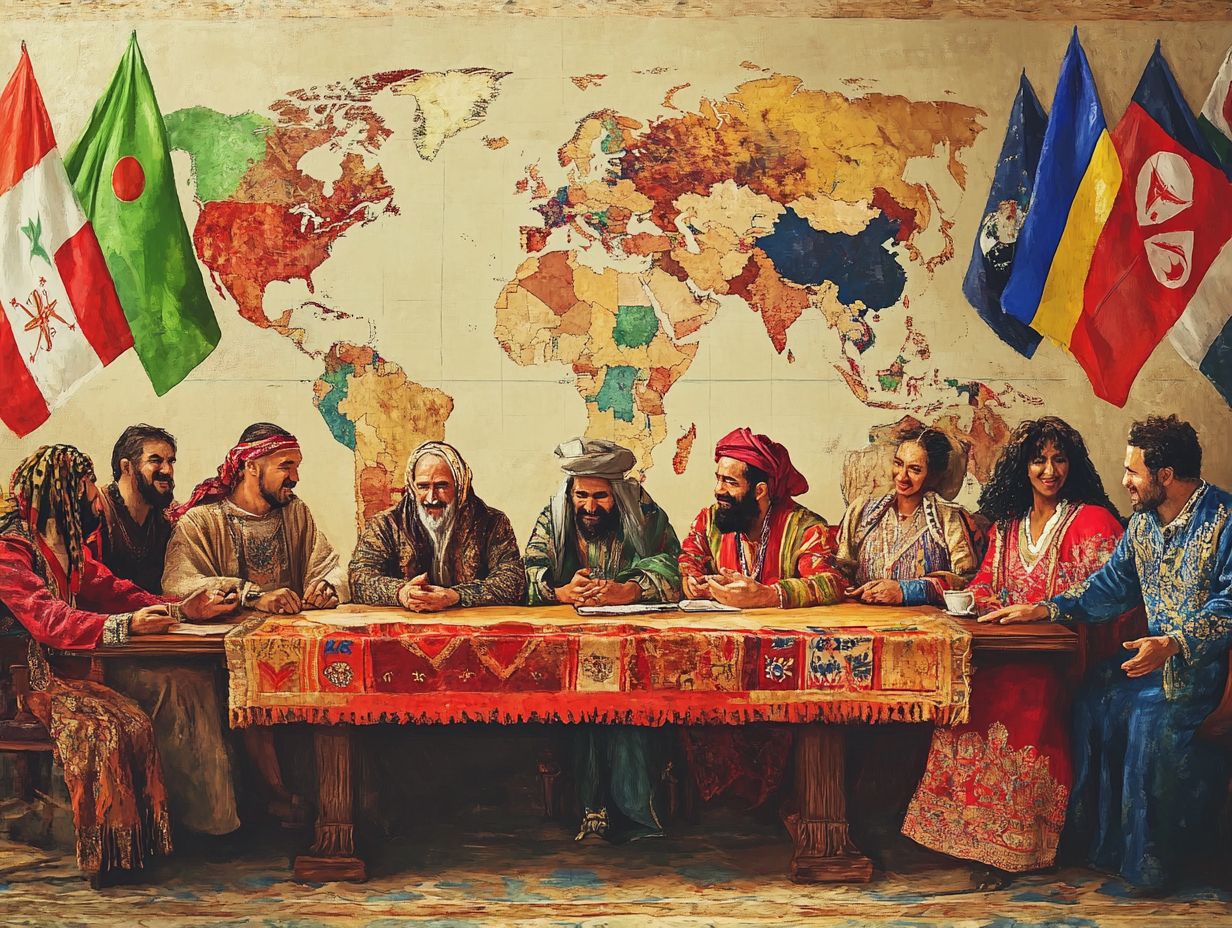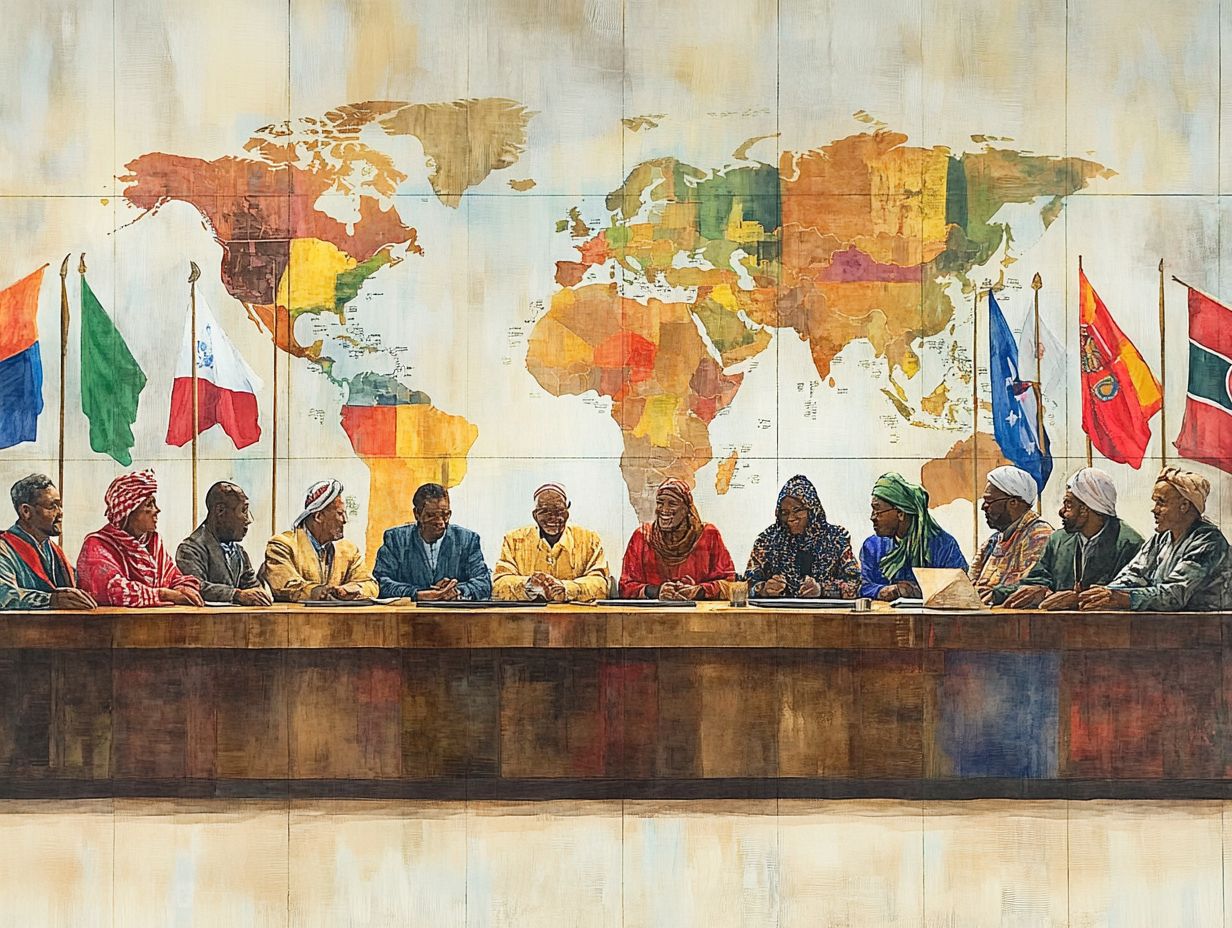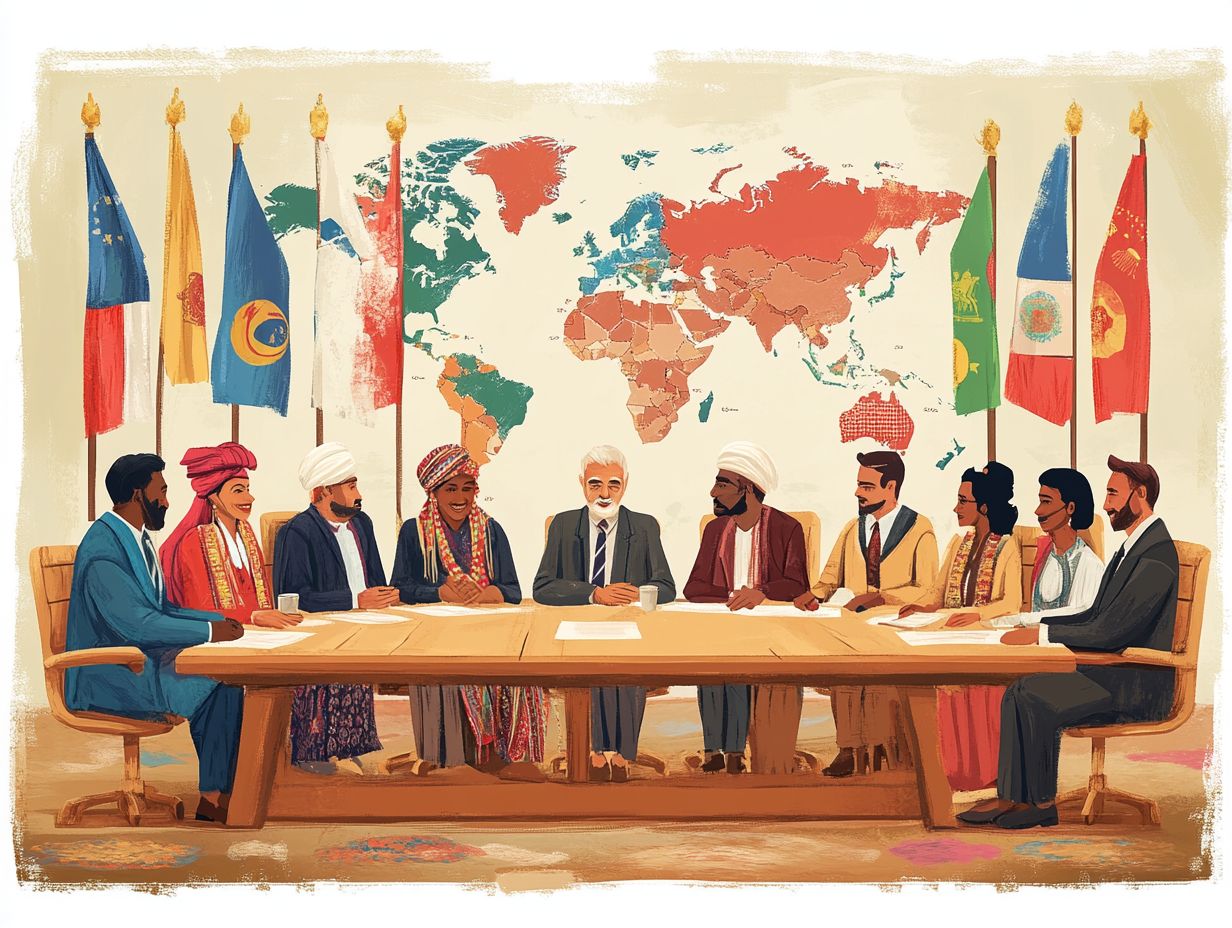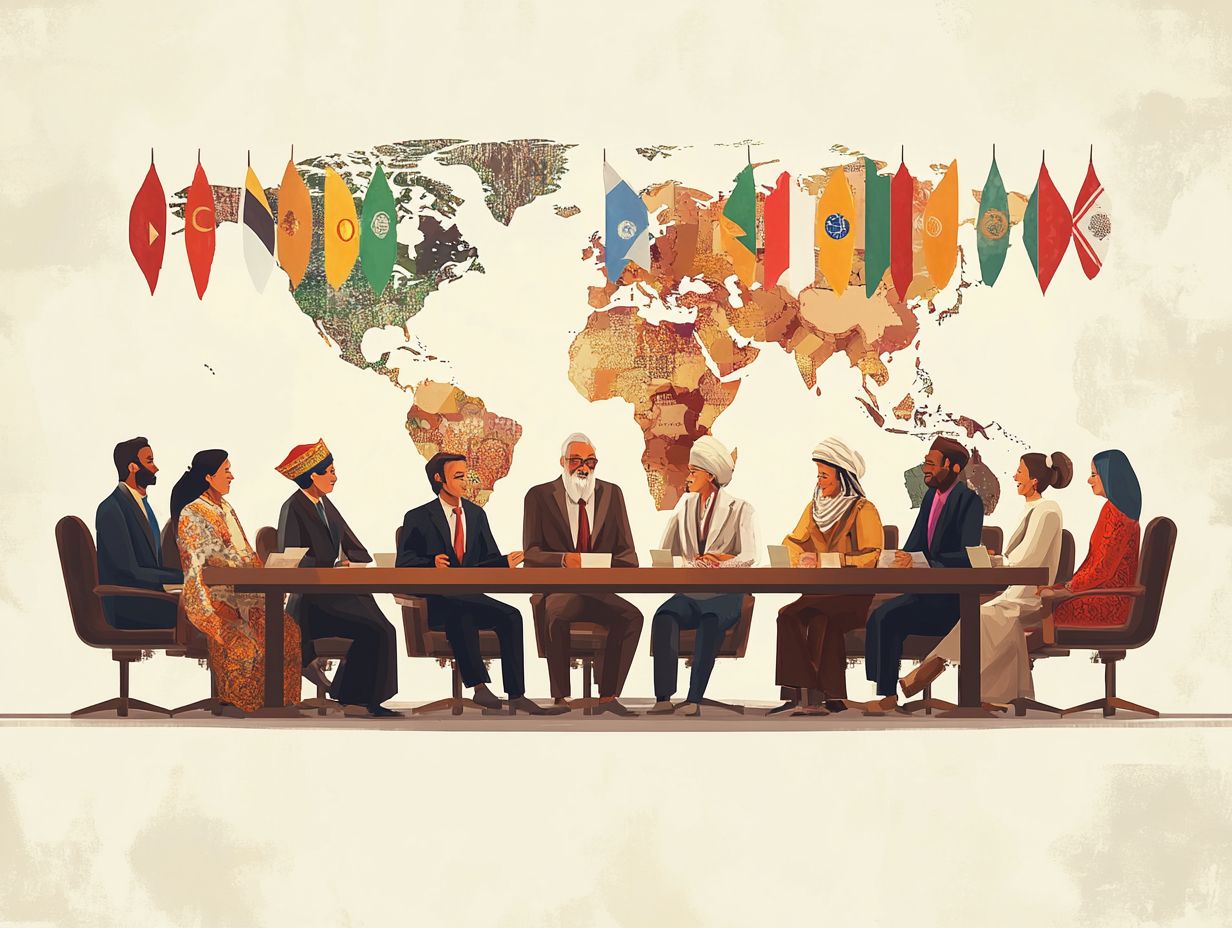Navigating Cultural Differences in Negotiation
In today s interconnected world, grasping cultural differences in negotiation has never been more essential.
Culture shapes your communication styles, decision-making processes, and relationship-building techniques, all of which significantly influence negotiation outcomes across borders.
This article delves into the subtle nuances of how culture impacts negotiation styles, pinpointing common differences from communication tactics to attitudes toward time.
You will find practical tips to enhance your intercultural negotiation skills.
Get ready to boost your negotiation skills and achieve amazing results!
Contents
- Key Takeaways:
- Why Understanding Cultural Differences Matters
- Common Cultural Differences in Negotiation
- Strategies for Navigating Cultural Differences
- Case Studies of Successful Cross-Cultural Negotiations
- Tips for Improving Intercultural Negotiation Skills
- Frequently Asked Questions
- What cultural differences can affect negotiations?
- How can I prepare to navigate cultural differences in negotiation?
- How can I handle cultural differences in negotiation?
- What should I do if faced with a cultural misunderstanding during a negotiation?
- How can I build rapport with someone from a different culture during a negotiation?
- What are the benefits of successfully navigating cultural differences in negotiation?
Key Takeaways:

Cultural differences in negotiation can greatly impact the success of a negotiation. Adapting communication styles and building trust are key strategies for navigating cultural differences. Continued learning and development can improve intercultural negotiation skills and lead to successful cross-cultural negotiations.
Why Understanding Cultural Differences Matters
In today s globalized marketplace, recognizing cultural differences in negotiation is essential for achieving successful outcomes and nurturing strategic partnerships.
As your business ventures into emerging markets, the ability to navigate diverse cultural landscapes can profoundly influence your negotiation results. Organizations like RED BEAR highlight the significance of the ability to understand and adapt to different cultures in negotiation training, showcasing how communication styles and negotiation tactics vary across countries like Japan, India, and Brazil.
By embracing this understanding, you foster trust and mutual comprehension, paving the way for enhanced organizational growth and more effective negotiations in the realm of international business.
Defining Culture and its Impact on Negotiation
Culture defines the shared values, beliefs, and practices of a group, deeply shaping negotiation dynamics and outcomes across various contexts. This impact becomes particularly clear in the ways individuals express emotions and make decisions during negotiations.
Take Turkey, for example, where emotional expression tends to be more direct and vibrant, reflecting a cultural norm that prioritizes personal connections and community. In contrast, Dutch negotiators often take a more reserved and pragmatic approach, emphasizing logical discourse and consensus-building.
These contrasting emotional styles can complicate cross-cultural negotiations, as one party s openness might be viewed as unprofessional by another. Successfully navigating these multicultural landscapes demands keen sensitivity to each party’s norms and an understanding of how culture influences communication and trust-building, ultimately shaping the success of the negotiation.
Common Cultural Differences in Negotiation
Exploring common cultural differences in negotiation unveils the profound ways in which diverse communication styles and attitudes toward time can significantly influence the negotiation experience.
Understanding these nuances allows you to navigate the complexities of negotiation with greater finesse and effectiveness.
Communication Styles and Nonverbal Cues
Communication styles, along with nonverbal cues, significantly influence the dynamics of negotiations. Grasping these nuances can elevate your cultural intelligence.
In today s globalized environment, where cross-cultural interactions are the norm, it s crucial for you to recognize how different cultures express themselves both verbally and nonverbally.
For example, in China, negotiators often favor indirect communication, subtly conveying messages to maintain harmony, with gestures like nodding to indicate understanding without drawing explicit attention.
On the other hand, in Brazil, the atmosphere is decidedly more expressive and animated, where physical gestures and facial expressions serve as vital indicators of engagement and enthusiasm.
By tailoring your negotiation tactics to accommodate these diverse communication styles, you can cultivate stronger relationships and achieve outcomes that are mutually beneficial.
Attitudes Towards Time and Decision Making

Different cultures hold distinct attitudes toward time and decision-making. These attitudes greatly influence negotiation styles and outcomes.
In the United States, people view time linearly. Punctuality and schedules are highly valued.
This perspective pushes professionals to prioritize efficiency. Quick results are key in negotiations.
In contrast, Japan takes a more flexible view of time. Patience and relationships are preferred over immediate gains.
This cultural nuance shapes how individuals perceive deadlines. It also influences their willingness to embrace risk.
You may want swift decisions. However, Japanese negotiators often favor longer discussions to ensure harmony and build lasting partnerships.
Implementing effective strategies for navigating cultural differences fosters trust. This is essential for successful negotiations across diverse cultures.
Understanding these differences paves the way for fruitful interactions and better outcomes.
Building Rapport and Establishing Trust
Building rapport and trust is crucial in negotiations don’t miss this step! Engaging with partners from diverse backgrounds requires understanding cultural norms.
For example, in some cultures, direct eye contact signifies confidence. In others, it may be seen as confrontational.
Acknowledging these nuances creates an atmosphere where both parties feel valued. With trust, negotiations flow more smoothly.
A trusting team can share sensitive information freely. This fosters innovative solutions, benefiting everyone involved.
Adapting Communication and Decision Making Processes
Adapting your communication and decision-making processes is crucial for successful negotiations in international business. Recognizing diverse cultural contexts helps build rapport and trust.
In cultures that prefer indirect communication, a subtler approach may work better. Understanding the decision-making hierarchy can also streamline negotiations.
For instance, an American tech company formed a joint venture with a Japanese firm by respecting the emphasis on consensus-building. They involved all stakeholders early in discussions, which led to a smoother agreement and a lasting partnership.
Case Studies of Successful Cross-Cultural Negotiations
Analyzing successful cross-cultural negotiations offers valuable insights into effective strategies. These real-world examples enhance your approach to global negotiations.
Examples of Effective Negotiation Strategies

Effective negotiation strategies show how understanding cultural backgrounds can enhance your negotiation outcomes. Recognizing and respecting diverse values, communication styles, and decision-making processes creates a friendly environment.
For example, some cultures prioritize building personal rapport before business discussions, while others may prefer a direct approach. Successful negotiators like you use active listening and ask open-ended questions. This helps tailor strategies to meet everyone s needs.
Flexibility fosters mutual respect and increases the chances of reaching a satisfying agreement. Being adaptable allows you to pivot when unexpected challenges arise, ensuring a fruitful outcome.
Tips for Improving Intercultural Negotiation Skills
Improving your intercultural negotiation skills is essential for navigating cultural differences in diverse business environments.
Mastering this art helps you engage effectively with colleagues and clients from various backgrounds, fostering stronger relationships and successful outcomes.
Continued Learning and Development
Continued learning is vital if you’re eager to enhance your cultural intelligence and negotiation skills over time.
Dive into workshops that provide hands-on experience and real-world scenarios to challenge your perspectives.
Engaging with insightful books and articles on intercultural communication offers critical insights that form the foundation of effective negotiation strategies.
Online courses can also be game-changers, allowing you to learn at your own pace and integrate new skills into your daily practice.
By honing your business communication skills, you can build productive relationships and approach complex negotiations with confidence.
Frequently Asked Questions
What cultural differences can affect negotiations?
Cultural differences that can impact negotiations include communication styles, attitudes toward time, decision-making processes, and approaches to conflict resolution.

Researching cultural norms and practices of the other party is key to successful negotiations. This helps avoid cultural misunderstandings and approach discussions with sensitivity.
How can I handle cultural differences in negotiation?
Strategies for navigating cultural differences include active listening, adapting your communication style, being aware of nonverbal cues, and approaching different perspectives with openness and respect.
What should I do if faced with a cultural misunderstanding during a negotiation?
Address any cultural misunderstandings calmly and respectfully. Ask for clarification and strive to understand the other party’s perspective. Avoid assuming your own cultural norms are the only correct way.
How can I build rapport with someone from a different culture during a negotiation?
Building rapport involves showing genuine interest and respect for their culture, being willing to learn and adapt, and finding common ground and shared values.
Successfully navigating cultural differences can lead to stronger relationships, increased understanding and respect for different cultures, and potentially better outcomes for both parties.






